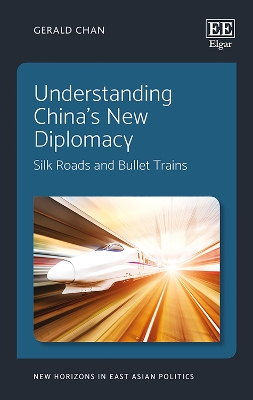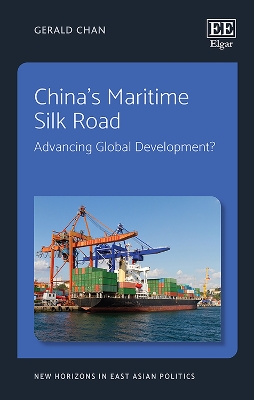New Horizons in East Asian Politics
2 total works
Understanding China's New Diplomacy - Silk Roads and Bullet Trains
by Gerald Chan
Understanding China?'s New Diplomacy offers an in-depth examination of how China has risen so quickly to become a high-speed rail superpower, and how this has impacted positively and negatively on other countries, particularly its neighbours in Asia. Chan also highlights the challenges the initiative poses to the state, particularly in balancing these projects to maintain China?'s status as both a land and maritime power. By reviewing the country?'s unique style of state capitalism and its success of absorbing foreign train technology, new developmental methods exclusive to China are revealed.
Government officials, foreign policy makers and students with a keen desire to discover more about Chinese foreign policy and international relations would greatly benefit from the expert insight into China?'s geopolitical future.
China′s Maritime Silk Road – Advancing Global Development?
by Gerald Chan
Gerald Chan explores China's rising maritime power, using geo-developmentalism as a theoretical framework to analyse the country's development of port facilities and infrastructure along important trade routes. Through developing these sea routes, he argues that a new global order is in the making. The book also offers an in-depth and balanced review of two major criticisms of China's BRI: the first being so-called 'debt trap diplomacy', and the second being security concerns surrounding China's IT industry, the resolution of which Chan suggests will pave the way towards developing a 'digital Silk Road'.
Following on from Chan's previous work on high-speed rail and other land networks, this book offers a comprehensive and up-to-date account on infrastructure building in this context. It will prove a stimulating read for scholars and students of Chinese foreign policy and international relations, as well as policy makers, government officials and businesses seeking to better understand China's foreign trade and development policies.

